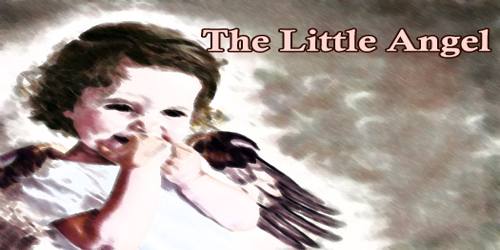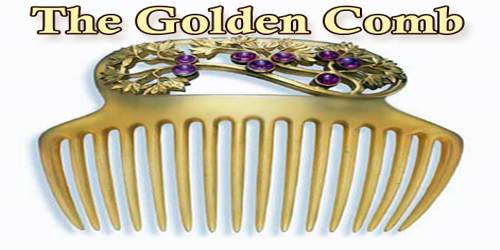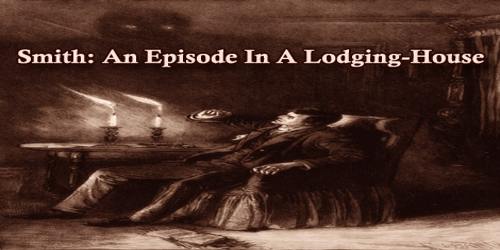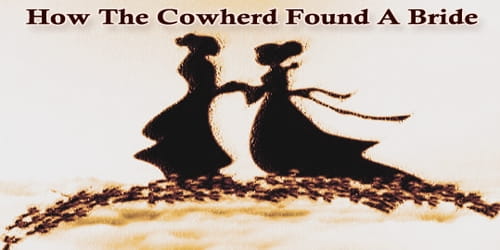I
At times Sashka wished to give up what is called living: to cease to wash every morning in cold water, on which thin sheets of ice floated about; to go no more to the grammar school, and there to have to listen to everyone scolding him; no more to experience the pain in the small of his back and indeed over his whole body when his mother made him kneel in the corner all the evening. But, since he was only thirteen years of age, and did not know all the means by which people abandon life at will, he continued to go to the grammar school and to kneel in the corner, and it seemed to him as if life would never end. A year would go by, and another, and yet another, and still he would be going to school, and be made to kneel in the corner. And since Sashka possessed an indomitable and bold spirit, he could not supinely tolerate evil, and so found means to avenge himself on life. With this object in view, he would thrash his companions, be rude to the Head, impertinent to the masters, and tell lies all day long to his teachers and to his mother but to his father, only he never lied. If in a fight he got his nose broken, he would purposely make the damage worse, and howl, without shedding a single tear, but so loudly that all who heard him were fain to stop their ears to keep out the disagreeable sound. When he had howled as long as thought advisable, he would suddenly cease, and, putting out his tongue, draw in his copy-book a caricature of himself howling at an usher who pressed his fingers to his ears, while the victor stood trembling with fear. The whole copy-book was filled with caricatures, the one which most frequently occurred being that of a short stout woman beating a boy as thin as a lucifer-match with a rolling pin. Below in a large scrawling hand would be written the legend: “Beg my pardon, puppy!” and the reply, “Won’t! blow’d if I do!”
Before Christmas Sashka was expelled from school, and when his mother attempted to thrash him, he bit her finger. This action gave him his liberty. He left off washing in the morning, ran about all day bullying the other boys, and had but one fear, and that was hunger, for his mother entirely left off providing for him, so that he came to depend upon the pieces of bread and potatoes which his father secreted for him. On these conditions, Sashka found existence tolerable.
One Friday (it was Christmas Eve) he had been playing with the other boys, until they had dispersed to their homes, followed by the squeak of the rusty frozen wicket gate as it closed behind the last of them. It was already growing dark, and a grey snowy mist was traveling up from the country, along a dark alley; in a low black building, which stood fronting the end of the alley, a lamp was burning with a reddish, unblinking light. The frost had become more intense, and when Sashka reached the circle of light cast by the lamp, he saw that fine dry flakes of snow were floating slowly on the air. It was high time to be getting home.
“Where have you been knocking about all night, puppy?” exclaimed his mother, doubling her fist, without, however, striking. Her sleeves were turned up, exposing her fat white arms, and on her forehead, almost devoid of eyebrows stood beads of perspiration. As Sashka passed by her he recognized the familiar smell of vodka. His mother scratched her head with the short dirty nail of her thick fore-finger, and since it was no good scolding, she merely spat, and cried: “Statisticians! That’s what they are!”
Sashka shuffled contemptuously, and went behind the partition, from whence might be heard the heavy breathing of his father, Ivan Savvich, who was in a chronic state of shivering, and was now trying to warm himself by sitting on the heated bench of the stove with his hands under him, palms downwards.
“Sashka! the Svetchnikovs have invited you to the Christmas tree. The housemaid came,” he whispered
“Get along with you!” said Sashka with incredulity.
“Fact! The old woman there has purposely not told you, but she has mended your jacket all the same.”
“Nonsense,” Sashka replied, still more surprised.
The Svetchnikovs were rich people, who had put him to the grammar school, and after his expulsion had forbidden him their house.
His father once more took his oath to the truth of his statement, and Sashka became meditative.
“Well then, move, shift a bit,” he said to his father, as he leapt upon the short bench, adding:
“I won’t go to those devils. I should prove jolly well too much for them if I were to turn up. Depraved boy,” drawled Sashka in imitation of his patrons. “They are none too good themselves, the smug-faced prigs!”
“Oh! Sashka, Sashka,” his father complained, sitting hunched up with cold, “you’ll come to a bad end.”
“What about yourself, then?” was Sashka’s rude rejoinder. “Better shut up. Afraid of the old woman. Ba! Old muff!”
His father sat on in silence and shivered. A faint light found its way through a broad clink at the top, where the partition failed to meet the ceiling by a quarter of an inch, and lay in bright patches upon his high forehead, beneath which the deep cavities of his eyes showed black.
In times gone by Ivan, Savvich had been used to drink heavily, and then his wife had feared and hated him. But when he had begun to develop unmistakable signs of consumption and could drink no longer, she took to drink in her turn, and gradually accustomed herself to vodka. Then she avenged herself for all she had suffered at the hands of that tall narrow-chested man, who used incomprehensible words, had lost his place through disobedience and drunkenness, and who brought home with him just such long-haired, debauched and conceited fellows as himself.
In contradistinction to her husband, the more Feoktista Petrovna drank the healthier she became, and the heavier became her fists. Now she said what she pleased, brought men and women to the house just as she chose, and sang with them noisy songs, while he lay silent behind the partition huddled together with perpetual cold, and meditating on the injustice and sorrow of human life. To everyone, with whom she talked, she complained that she had no such enemies in the world as her husband and son, they were stuck-up statisticians!
For the space of an hour his mother kept drumming into Sashka’s ears:
“But I say you shall go,” punctuating each word with a heavy blow on the table, which made the tumblers, placed on it after washing, jump and rattle again.
“But I say I won’t!” Sashka coolly replied, dragging down the corners of his mouth with the will to show his teeth a habit which had earned for him at school the nickname of Wolfkin.
“I’ll thrash you, won’t I just!” cried his mother.
“All right! thrash away!”
But Feoktista Petrovna knew that she could no longer strike her son now that he had begun to retaliate by biting and that if she drove him into the street he would go off larking, and sooner get frost-bitten than go to the Svetchnikovs, therefore she appealed to her husband’s authority.
“Calls himself a father, and can’t protect the mother from insult!”
“Really, Sashka, go. Why are you so obstinate?” he jerked out from the bench. “They will perhaps take you up again. They are kind people.” Sashka only laughed in an insulting manner.
His father, long ago, before Sashka was born, had been a tutor at the Svetchnikovs’, and had ever since looked on them as the best people in the world. At that time he had held also an appointment in the statistical office of the Zemstvo, and had not yet taken to drink. Eventually, he was compelled through his own fault to marry his landlady’s daughter. From that time he severed his connection with the Svetchnikovs, and took to drink. Indeed, he let himself go to such an extent, that he was several times picked up drunk in the streets and taken to the police station. But the Svetchnikovs did not cease to assist him with money, and Feoktista Petrovna, although she hated them, together with books and everything connected with her husband’s past, still valued their acquaintance, and was in the habit of boasting of it.
“Perhaps you might bring something for me too from the Christmas tree,” continued his father. He was using craft to induce his son to go, and Sashka knew it, and despised his father for his weakness and want of straightforwardness; though he really did wish to bring back something for the poor sickly old man, who had for a long time been without even good tobacco.
“All right!” he blurted out; “give me my jacket. Have you put the buttons on? No fear! I know you too well!”
II
The children had not yet been admitted to the drawing-room, where the Christmas tree stood, but remained chattering in the nursery. Sashka, with lofty superciliousness, stood listening to their naïve talk, and fingering in his breeches pocket the broken cigarettes which he had managed to abstract from his host’s study. At this moment there came up to him the youngest of the Svetchnikovs, Kolya, and stood motionless before him, a look of surprise on his face, his toes turned in, and a finger stuck in the corner of his pouting mouth. Six months ago, at the instance of his relatives, he had given up this bad habit of putting his finger in his mouth, but he could not quite break himself of it. He had blonde locks cut in a fringe on his forehead and falling in ringlets on his shoulders, and blue, wondering eyes; in fact, he was just such a boy in appearance as Sashka particularly loved to bully.
“Are too we ally a naughty boy?” he inquired of Sashka. “Miss said too was. I’m a good boy.”
“That you are!” replied Sashka, considering the other’s short velvet trousers and great turn-down collars.
“Would too like to have a dun? There!” and he pointed at him a little pop-gun with a cork tied to it. The Wolf kin took the gun, pressed down the spring, and, aiming at the nose of the unsuspecting Kolya, pulled the trigger. The cork struck his nose, and rebounding, hung by the string. Kolya’s blue eyes opened wider than ever, and filled with tears. Transferring his finger from his mouth to his reddening nose he blinked his long eyelashes and whispered:
“Bad boy!”
A young lady of striking appearance, with her hair dressed in the simplest and the most becoming fashion, now entered the nursery. She was sister to the lady of the house, the very one indeed to whom Sashka’s father had formerly given lessons.
“Here’s the boy,” said she, pointing out Sashka to the bald-headed man who accompanied her. “Bow, Sashka, you should not be so rude!”
But Sashka would bow neither to her, nor to her companion of the bald head. She little suspected how much he knew. But, as a fact, Sashka did know that his miserable father had loved her and that she had married another; and, though this had taken place subsequent to his father’s marriage, Sashka could not bring himself to forgive what seemed to him like treachery.
“Takes after his father!” sighed Sofia Dmitrievna. “Could not you, Plutov Michailovich, do something for him? My husband says that a commercial school would suit him better than the grammar school. Sashka, would you like to go to a technical school?”
“No!” curtly replied Sashka, who had caught the offensive word “husband.”
“Do you want to be a shepherd, then?” asked the gentleman.
“Not likely!” said Sashka, in an offended tone.
“What then?”
Now Sashka did not know what he would like to be, but upon reflection replied: “Well, it’s all the same to me, even a shepherd, if you like.”
The bald-headed gentleman regarded the strange boy with a look of perplexity. When his eyes had travelled up from his patched boots to his face, Sashka put out his tongue and quickly drew it back again, so that Sofia Dmitrievna did not notice anything, but the old gentleman showed an amount of irascibility that she could not understand.
“I should not mind going to a commercial school,” bashfully suggested Sashka.
The lady was overjoyed at Sashka’s decision, and meditated with a sigh on the beneficial influence exercised by an old love.
“I don’t know whether there will be a vacancy,” dryly remarked the old man avoiding looking at Sashka, and smoothing down the ridge of hair which stuck up on the back of his head. “However, we shall see.”
Meanwhile, the children were becoming noisy, and in a great state of excitement were waiting impatiently for the Christmas tree.
The excellent practice with the pop-gun made in the hands of a boy, who commanded respect both for his stature and for his reputation for naughtiness, found imitators, and many a little button of a nose was made red. The tiny maids, holding their sides, bent almost double with laughter, as their little cavaliers with manly contempt of fear and pain, but all the same wrinkling up their faces in suspense received the impact of the cork.
At length, the doors were opened, and a voice said: “Come in, children; gently, not so fast!” Opening their little eyes wide, and holding their breath in anticipation, the children filed into the brightly illumined drawing-room in orderly pairs and quietly walked round the glittering tree. It cast a strong, shadowless light on their eager faces, with rounded eyes and mouths. For a minute there reigned the silence of profound enchantment, which all at once broke out into a chorus of delighted exclamation. One of the little girls, unable to restrain her delight, kept dancing up and down in the same place, her little tress braided with blue ribbon beating meanwhile rhythmically against her shoulders. Sashka remained morose and gloomy something evil was working in his little wounded breast. The tree blinded him with its red, shriekingly insolent glitter of countless candles. It was foreign, hostile to him, even as the crowd of smart, pretty children which surrounded it. He would have liked to give it a shove, and topple it over on their shining heads. It seemed as though some iron hand were gripping his heart, and wringing out of it every drop of blood. He crept behind the piano, and sat down there in a corner unconsciously crumpling to pieces in his pocket the last of the cigarettes, and thinking that though he had a father and mother and a home, it came to the same thing as if he had none, and nowhere to go to. He tried to recall to his imagination his little penknife, which he had acquired by a swap not long ago, and was very fond of; but his knife all at once seemed to him a very poor affair with its ground-down blade and only half of a yellow haft. To-morrow he would smash it up, and then he would have nothing left at all!
But suddenly Sashka’s narrow eyes gleamed with astonishment, and his face in a moment resumed its ordinary expression of audacity and self-confidence. On the side of the tree turned towards him which was the back of it, and less brightly illumined than the other side he discovered something such as had never come within the circle of his existence, and without which all his surroundings appeared as empty as though peopled by persons without life. It was a little angel in wax carelessly hung in the thickest of the dark boughs, and looking as if it were floating in the air. His transparent dragon-fly wings trembled in the light, and he seemed altogether alive and ready to fly away. The rosy fingers of his exquisitely formed hands were stretched upwards, and from his head there floated just such locks as Kolya’s. But there was something here that was wanting in Kolya’s face, and in all other faces and things. The face of the little angel did not shine with joy, nor was it clouded by grief; but there lay on it the impress of another feeling, not to be explained in words, nor defined by thought, but to be attained only by the sympathy of a kindred feeling. Sashka was not conscious of the force of the mysterious influence which attracted him towards the little angel, but he felt that he had known him all his life, and had always loved him, loved him more than his penknife, more than his father, more than anything else. Filled with doubt, alarm, and delight which he could not comprehend, Sashka clasped his hands to his bosom and whispered:
“Dear little angel!”
The more intently he looked the more fraught with significance the expression of the little angel’s face became. He was so infinitely far off, so unlike everything which surrounded him there. The other toys seemed to take pride in hanging there pretty, and decked out, upon the glittering tree, but he was pensive, and fearing the intrusive light purposely hid himself in the dark greenery, so that none might see him. It would be mad cruelty to touch his dainty little wings.
“Dear!” whispered Sashka.
His head became feverish. He clasped his hands behind his back, and in full readiness to fight to the death to win the little angel, he walked to and fro with cautious, stealthy steps. He avoided looking at the little angel, lest he should direct the attention of others towards him, but he felt that he was still there, and had not flown away.
Now the hostess appeared in the doorway, a tall, stately lady with a bright aureole of grey hair dressed high upon her head. The children trooped round her with expressions of delight, and the little girl the same that had danced about in her place hung wearily on her hand, blinking heavily with sleepy eyes.
As Sashka approached her he seemed almost choking with emotion.
“Auntie auntie!” said he, trying to speak caressingly, but his voice sounded harsher than ever. “Auntie, dear!”
She did not hear him, so he tugged impatiently at her dress.
“What’s the matter with you? Why are you pulling my dress?” said the grey-haired lady in surprise. “It’s rude.”
“Auntie auntie, do give me one thing from the tree; give me the little angel.”
“Impossible,” replied the lady in a tone of indifference. “We are going to keep the tree decorated till the New Year. But you are no longer a child; you should call me by name Maria Dmitrievna.”
Sashka, feeling as if he were falling down a precipice, grasped the last means of saving himself.
“I am sorry I have been naughty. I’ll be more industrious for the future,” he blurted out. But this formula, which had always paid with his masters, made no impression upon the lady of the grey hair.
“A good thing, too, my friend,” she said, as unconcernedly as before.
“Give me the little angel,” demanded Sashka, gruffly.
“But it’s impossible. Can’t you understand that?”
But Sashka did not understand, and when the lady turned to go out of the room he followed her, his gaze fixed without conscious thought upon her black silk dress. In his surging brain there glimmered a recollection of how one of the boys in his class had asked the master to mark him 3, and when the master refused he had knelt down before him, and putting his hands together as in prayer, had begun to cry. The master was angry, but gave him 3 all the same. At the time Sashka had immortalized this episode in a caricature, but now his only means left was to follow the boy’s example. Accordingly he plucked at the lady’s dress again, and when she turned round, dropped with a bang on to his knees, and folded his hands as described above. But he could not squeeze out a single tear!
“Are you out of your mind?” exclaimed the grey-haired lady, casting a searching look round the room; but luckily no one was present.
“What is the matter with you?”
Kneeling there with clasped hands, Sashka looked at her with dislike, and rudely repeated:
“Give me the little angel.”
His eyes, fixed intently on the lady to catch the first word she should utter, were anything but good to look at, and the hostess answered hurriedly:
“Well, then, I’ll give it to you. Ah! What a stupid you are! I will give you what you want, but why could you not wait till the New Year?”
“Stand up! And never,” she added in a didactic tone, “never kneel to anyone: it is humiliating. Kneel before God alone.”
“Talk away!” thought Sashka, trying to get in front of her, and merely succeeding in treading on her dress.
When she had taken the toy from the tree, Sashka devoured her with his eyes but stretched out his hands for it with a painful pucker of the nose. It seemed to him that the tall lady would break the little angel.
“Beautiful thing!” said the lady, who was sorry to part with such a dainty and presumably expensive toy. “Who can have hung it there? Well, what do you want with such a thing? Are you not too big to know what to do with it? Look, there are some picture-books. But this I promised to give to Kolya; he begged so earnestly for it.” But this was not the truth.
Sashka’s agony became unbearable. He clenched his teeth convulsively and seemed almost to grind them. The lady of the grey hair feared nothing so much as a scene, so she slowly held out the little angel to Sashka.
“There now, take it!” she said in a displeased tone; “what a persistent boy you are!”
Sashka’s hands as they seized the little angel seemed like tentacles and were tense as steel springs, but withal so soft and careful that the little angel might have imagined himself to be flying in the air.
“A-h-h!” escaped in a long diminuendo sigh from Sashka’s breast, while in his eyes glistened two little tear-drops, which stood still there as though unused to the light. Slowly drawing the little angel to his bosom, he kept his shining eyes on the hostess, with a quiet, tender smile which died away in a feeling of unearthly bliss. It seemed, when the dainty wings of the little angel touched Sashka’s sunken breast as if he experienced something so blissful, so bright, the like of which had never before been experienced in this sorrowful, sinful, suffering world.
“A-h-h!” sighed he once more as the little angel’s wings touched him. And at the shining of his face the absurdly decorated and insolently growing tree seemed to be extinguished, and the grey-haired, portly dame smiled with gladness, and the parchment-like face of the bald-headed gentleman twitched, and the children fell into a vivid silence as though touched by a breath of human happiness.
For one short moment all observed a mysterious likeness between the awkward boy who had outgrown his clothes, and the lineaments of the little angel, which had been spiritualized by the hand of an unknown artist.
But the next moment the picture was entirely changed. Crouching like a panther preparing to spring, Sashka surveyed the surrounding company, on the look-out for someone who should dare wrest his little angel from him.
“I’m going home,” he said in a dull voice, having in view a way of escape through the crowd, “home to Father.”
III
His mother was asleep worn out with a whole day’s work and vodka-drinking. In the little room behind the partition there stood a small cooking-lamp burning on the table. Its feeble yellow light, with difficulty penetrating the sooty glass, threw a strange shadow over the faces of Sashka and his father.
“Is it not pretty?” asked Sashka in a whisper, holding the little angel at a distance from his father, so as not to allow him to touch it.
“Yes, there’s something most remarkable about him,” whispered the father, gazing thoughtfully at the toy. And his face expressed the same concentrated attention and delight, as did Sashka’s.
“Look, he is going to fly.”
“I see it too,” replied Sashka in an ecstasy. “Think I’m blind? But look at his little wings! Ah! don’t touch!”
The father withdrew his hand, and with troubled eyes studied the details of the little angel, while Sashka whispered with the air of a pedagogue:
“Father, what a bad habit you have of touching everything! You might break it.”
There fell upon the wall the shadows of two grotesque, motionless heads bending towards one another, one big and shaggy, the other small and round.
Within the big head strange torturing thoughts, though at the same time full of delight, were seething. His eyes unblinkingly regarded the little angel, and under his steadfast gaze it seemed to grow larger and brighter, and its wings to tremble with a noiseless trepidation, and all the surroundings the timber-built, soot-tained wall, the dirty table, Sashka everything became fused into one level grey mass without light or shade. It seemed to the broken man that he heard a pitying voice from the world of wonders, wherein once he had dwelt, and whence he had been cast out forever. There they knew nothing of dirt, of weary quarreling, of the blindly-cruel strife of egotism, there they knew nothing of the tortures of a man arrested in the streets with callous laughter, and beaten by the rough hand of the night-watchman. There everything is pure, joyful, bright. And all this purity found an asylum in the soul of her whom he loved more than life, and had lost when he had kept his hold upon his own useless life. With the smell of wax, which emanated from the toy, was mingled a subtle aroma, and it seemed to the broken man that her dear fingers touched the angel, those fingers which he would fain have caressed in one long kiss, till death should close his lips forever. This was why the little toy was so beautiful; this was why there was in it something especially attractive, which defied description. The little angel had descended from that heaven which her soul was to him, and had brought a ray of light into the damp room, steeped in sulphurous fumes, and to the dark soul of the man from whom had been taken all: love, and happiness, and life.
On a level with the eyes of the man, who had lived his life, sparkled the eyes of the boy, who was beginning his life, and embraced the little angel in their caress. For them present and future had disappeared: the ever-sorrowful, piteous father, the rough, unendurable mother, the black darkness of insults, of cruelty, of humiliations, and of spiteful grief. The thoughts of Sashka were formless, nebulous, but all the more deeply for that did they move his agitated soul. Everything that is good and bright in the world, all profound grief, and the hope of a soul that sighs for God the little angel absorbed them all into himself, and that was why he glowed with such a soft divine radiance, that was why his little dragonfly wings trembled with a noiseless trepidation.
The father and son did not look at one another: their sick hearts grieved, wept, and rejoiced apart. But there was a something in their thoughts which fused their hearts in one, and annihilated that bottomless abyss which separates man from man and makes him so lonely, unhappy, and weak. The father with an unconscious motion put his arm around the neck of his son, and the son’s head rested equally without conscious volition upon his father’s consumptive chest.
“She it was who gave it to thee, was it not?” whispered the father, without taking his eyes off the little angel.
At another time Sashka would have replied with a rude negation, but now the only reply possible resounded of itself within his soul, and he calmly pronounced the pious fraud: “Who else? of course she did.”
The father made no reply, and Sashka relapsed into silence.
Something grated in the adjoining room, then clicked, and then was silent for a moment, and then noisily and hurriedly the clock struck “One, two, three.”
“Sashka, do you ever dream?” asked the father in a meditative tone.
“No! Oh, yes,” he admitted, “once I had one, in which I fell down from the roof. We were climbing after the pigeons, and I fell down.”
“But I dream always. Strange things are dreams. One sees the whole past, one loves and suffers as though it were reality.”
Again he was silent, and Sashka felt his arm tremble as it lay upon his neck. The trembling and pressure of his father’s arm became stronger and stronger, and the sensitive silence of the night was all at once broken by the pitiful sobbing sound of suppressed weeping. Sashka sternly puckered his brow, and cautiously so as not to disturb the heavy trembling arm wiped away a tear from his eyes. So strange was it to see a big old man crying.
“Ah! Sashka, Sashka,” sobbed the father, “what is the meaning of everything?”
“Why, what’s the matter?” sternly whispered Sashka. “You’re crying just like a little boy.”
“Well, I won’t, then,” said the father with a piteous smile of excuse. “What’s good?”
Feoktista Petrovna turned on her bed. She sighed, cleared her throat, and mumbled incoherent sounds in a loud and strangely persistent manner.
It was time to go to bed. But before doing so the little angel must be disposed of for the night. He could not be left on the floor, so he was hung up by his string, which was fastened to the flue of the stove. There it stood out accurately delineated against the white Dutch-tiles. And so they could both see him, Sashka and his father.
Hurriedly throwing into a corner the various rags on which he was in the habit of sleeping, Sashka lay down on his back, in order as quickly as possible to look again at the little angel.
“Why don’t you undress?” asked his father as he shivered and wrapped himself up in his tattered blanket, and arranged his clothes, which he had thrown over his feet.
“What’s good? I shall soon be up again.”
Sashka wished to add that he did not care to go to sleep at all, but he had no time to do so, since he fell to sleep as suddenly as though he had sunk to the bottom of a deep swift river.
His father presently fell asleep also. And gentle sleep and restfulness lay upon the weary face of the man who had lived his life, and upon the brave face of the little man who was just beginning his life.
But the little angel hanging by the hot stove began to melt. The lamp, which had been left burning at the entreaty of Sashka, filled the room with the smell of kerosene, and through its smoked glass threw a melancholy light upon a scene of gradual dissolution. The little angel seemed to stir. Over his rosy fingers there rolled thick drops which fell upon the bench. To the smell of kerosene was added the stifling scent of melting wax. The little angel gave a tremble as though on the point of flight and fell with a soft thud upon the hot flags.
An inquisitive cockroach singed its wings as it ran round the formless lump of melted wax, climbed up the dragon-fly wings, and twitching its feelers went on its way.
Through the curtained window the grey-blue light of the coming day crept in, and the frozen water-carrier was already making a noise in the courtyard with his iron scoop.
Written by Leonid Andreyev
















